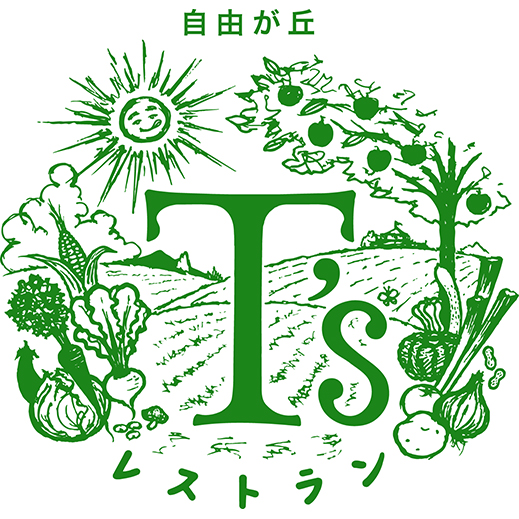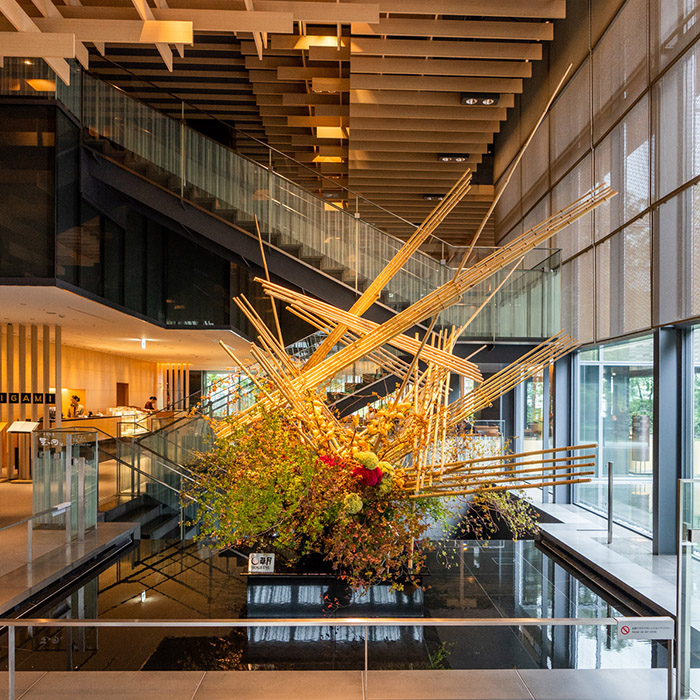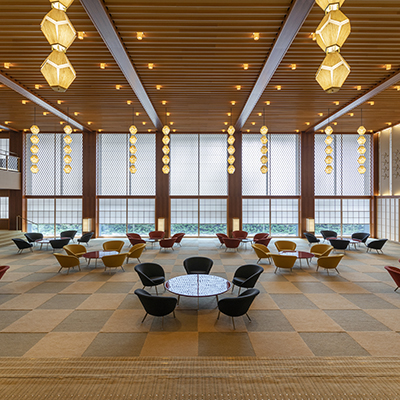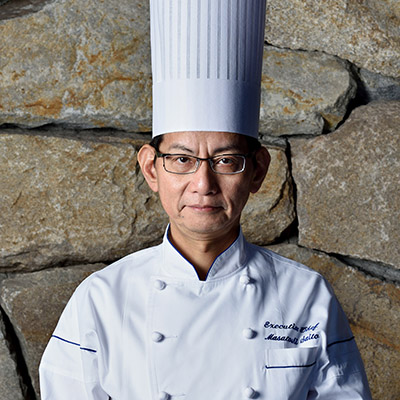September 17, 2025
A Once-in-a-Lifetime Encounter on the Water
The Hospitality Philosophy and Style of Funasei’s Okami, Hostess of a Traditional Yakatabune
Against the backdrop of Tokyo’s illuminated waterfront, Funasei offers more than fine dining and scenic views. Tatami mats, lanterns, and freshly prepared tempura create an atmosphere of traditional refinement, while the staff’s attentive presence ensures a sense of comfort. At the heart of this experience is Okami Yoko Ito, who is far more than a host. She is a cultural envoy on the water—a bridge between cultures. She is truly worthy of being called the “flower of people-to-people diplomacy.” Join us as we explore the Okami’s omotenashi philosophy, where harmony blends with the timeless spirit of Japan.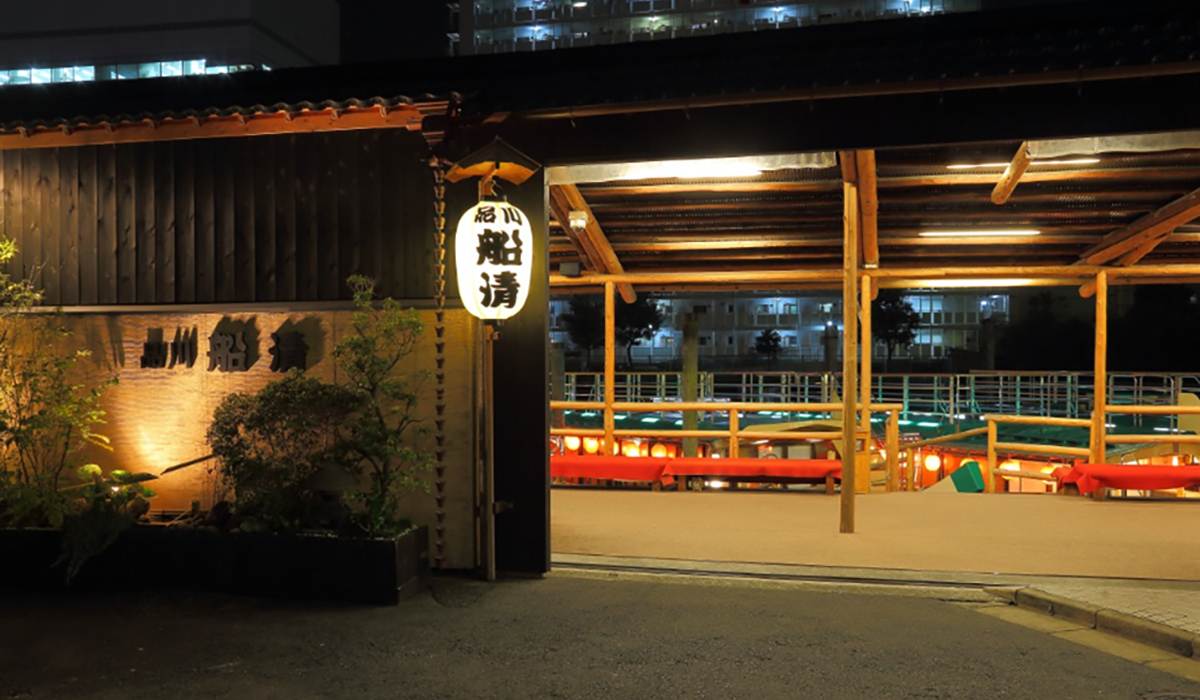
Yakatabune: A Tradition Reimagined
The yakatabune tradition started during the Heian period (794–1185) as leisure boats for aristocrats and grew popular in the Edo period (1603–1868), when feudal lords and wealthy merchants competed with elaborate designs, while commoners enjoyed simpler “roofed boats.” Although the custom declined after the Meiji era (1868–), it experienced a resurgence during the postwar years and economic growth, becoming a notable feature of Tokyo Bay and the Sumida River. Today, yakatabune is known as “floating restaurants,” combining tatami seating with modern table setups, and continue to attract both local and international visitors.A Conversation with Okami

Yoko Ito
Okami (Proprietress and Hostess), Funasei Yakatabune
The foundation of my work is always the same: “How can our guests truly enjoy themselves?” That principle sustains us and drives us forward. My early career in upscale ryōtei and restaurants serving the Imperial Household allowed me to see the art of refined hospitality firsthand. That experience remains the core of my practice today.
With a growing share of overseas visitors, how do you respond to diverse needs?
International guests now comprise 30–40% of our annual clientele. Dietary needs are crucial—whether you have allergies, follow a halal diet, are vegetarian, or require a gluten-free diet—and we confirm these ahead of time. Gluten-free options, for instance, are cooked with separate pans and rice flour. We also offer table seating for guests who are not used to removing shoes on tatami. To me, genuine omotenashi starts with respecting and adjusting to cultural differences.

What is the core value that Funasei provides?
We focus on four pillars:
- A Japanese atmosphere created through lanterns, tatami, and traditional attire
- The nightscape of Tokyo as seen from the water
- The warmth and attentiveness of our staff
- The authenticity of cuisine, including freshly fried tempura
Could you share a memorable experience and your guiding principle in management?
I once arranged a special meal for a group with very strict dietary requirements. They told us it was “the most delicious food of their entire trip,” which remains unforgettable. On the other hand, challenges such as late arrivals can disrupt operations. Because a yakatabune is a closed environment, I emphasize setting the tone immediately through a welcoming greeting. Creating moments where guests of different cultures can enjoy together is the greatest reward.

What are your aspirations for the future?
Yakatabune is a cultural tradition with roots in Edo, but today, they are also venues for international exchange. Looking ahead, we plan to launch a more luxurious vessel featuring specialized dining courses—sushi, teppanyaki, and beyond—in a premium setting. My mission is to extend yakatabune culture into the future, positioning it as both a heritage experience and a stage for global dialogue. In this sense, I see my role as “a symbol of people-to-people diplomacy,” welcoming the world to Japan from the water.
Conclusion
For Okami Ito, hospitality begins with a greeting—and sometimes a toast. When cultural ambiance, culinary integrity, and human warmth converge, the result is not merely a dinner cruise but a shared experience that transcends borders. This is the essence of Funasei’s omotenashi, where tradition becomes a stage for diplomacy on the waters of Tokyo.
Announcement
On October 5, there will be a special event:“Premium Sushi Cruise with Hebikubo Shrine’s Blessings”
- Limited to 36 participants
- Fee: 15,000 yen per person (including sushi lunch kaiseki and a souvenir)
Reservations (Japanese only) available here:
https://shinagawa-kanko.or.jp/event/premiumtour/



